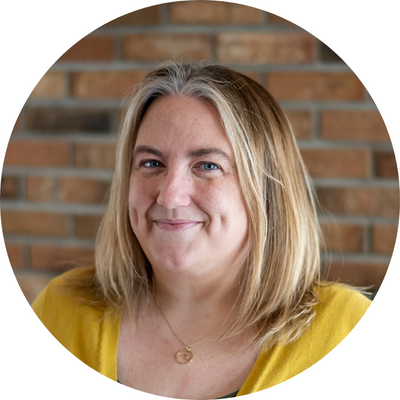As the fall semester approaches and with the release of Braiding Past, Present, and Future: University of Alberta Indigenous Strategic Plan, now is a particularly good time to review frameworks for equity, diversity and inclusion and student-focused pedagogies. This can be daunting work that requires ongoing learning, examining our own biases and engaging in challenging conversations. However, this work is also necessary to disrupt systemic barriers and ensure that post-secondary learning is broadly accessible. In this piece, we will share some of these key frameworks and theories and demonstrate how attentiveness to justice-oriented teaching and learning inform approaches to writing assignments and assessment.
Frameworks for EDI and student-focused pedagogies
The whole person approach
Our pedagogies, learning and teaching practices are determined by several factors when we consider our students and those involved in learning and teaching as whole people. This holistic perspective centres on the mind, body, heart and ego by nurturing pedagogies of care, compassion, empathy, social, emotional, economic and environmental conditions.
Social location
Further deconstruction of who we are — personally, socially and professionally — underscores social location, which includes community affiliations: social class, sexual orientation, gender, age, race, religion/belief system, disability and geographic location. Social location and the individual uniqueness of learners and educators aligns with our ultimate undertaking: to collaborate in nurturing inclusive, just and student-centered learning environments.
Equity, diversity and inclusion
Our individual uniquenesses may be deconstructed using an equity, diversity and inclusion (EDI) lens demystified by our University of Alberta’s Strategic Plan for Equity, Diversity and Inclusivity. EDI and social location parameters prompt us to critique current structures and practices by interrupting colonial legacies and ongoing oppression in our curricula and teaching practices. Additionally, post-colonial education analytically interrogates colonial and neocolonial overtones in our pedagogies. Further, decolonization and Indigenization strategies have been elaborated by Dr. Florence Glanfied in our recently unveiled Braiding Past, Present and Future: University of Alberta Indigenous Strategic Plan.
Universal Design for Learning
Our diverse student populations thrive with learning supports, especially inclusive considerations (commonly referred to as “accommodations” and unfortunately as a reaction rather than a proactive action) like differentiated instruction/learning opportunities. Additionally, the Universal Design for Learning (UDL) framework can be embedded in our pedagogies. UDL may therefore provide multiple opportunities for:
- Engagement: the “WHY” of learning and teaching
- Representation: the “WHAT” of learning and teaching
- Action and Expression: the “HOW” of learning and teaching in our diverse and inclusive learning and teaching environments
Critical pedagogies
Critical pedagogies nourishes our teaching practices with principles of “active learning, fostered by decentering power dynamics by relegating ourselves from instructors to facilitators or “guide[s] on the side.”
The whole person approach, social location, EDI, UDL and critical pedagogies are foundational pieces to nurture and drive inclusive, justice-focused learning and teaching practices.
Applying EDI, UDL and critical pedagogies in writing instruction
UDL emphasizes differentiation and multimodality and it is a useful framework for inclusive writing assignments. However, because individual access needs can conflict, UDL has limitations. For example, while many students enjoy chatting with each other during synchronous online classes, a student using a screen reader may find the voiceover defaulting to the Zoom chat, speaking over the person in the video window. Further, the UDL framework does not currently include concrete strategies for resisting systemic oppression within universities, including the privileging of settler-colonial modes of engagement, course design and assessment.
To lessen these systemic and individual barriers, instructors should get to know the students in each classroom context: their values, their access needs and who they are as whole people. Demonstrating this level of care and attention to students helps develop a trusting, relational and responsive classroom community. Some questions you can ask your students include
- Why are you taking this course?
- What skills or content are you most/least excited to learn about?
- What skills or content are missing that you hoped to learn about?
- What are your ideal learning conditions?
- What learning conditions do you find challenging?
- Do you have any specific access/learning needs that you know of that you’d like to share?
- How can I support your learning during this course?
Of course, writing assignment development typically occurs before the semester begins and before instructors engage students directly. Overall, instructors and students alike are generally well-served to take a flexible approach to assignments within each (unique) classroom community: by discussing their purposes and pathways for execution directly, by making space for questions/concerns and by making changes when/as appropriate. However, there are also strategies for building inclusive assignments that we can integrate before the term begins to minimize barriers to engagement and success that students may face in classrooms:
- Inclusive writing assignments are flexible and multimodal (e.g., flexible due dates or “grace days;” choice between 2 or 3 different assignments that demonstrate the specified skill or knowledge; choice between different modes of communication, including written, audio and/or video assignments)
- Inclusive writing assignments are transparent and collaborative (e.g., explaining the purpose and design of an assignment with students in class; offering multiple avenues for asking questions and seeking support; identifying places on campus where students can get writing/communication feedback; inviting students to offer feedback on the assignment before, during and after assignment completion; facilitating writing and peer review sessions in the virtual and/or physical classroom)
- Inclusive writing assignments recognize, validate and celebrate global Englishes and multilingual speakers, as well as multiple genres of expression (e.g., including opportunities for reflection and storytelling in research-based writing assignments; grading grammar for clarity rather than individual deviations (or “errors”) from Eurocentric academic English; facilitating conversations about language and genre conventions in academia; demystifying writing genres in university, especially for international students and students whose first or primary language is not English; offering low-stakes assignments throughout the semester that are assessed primarily for engagement with ideas or process instead of structure and mechanics).
In addition to thinking about writing assignments and assessments, another way we can manage the work of EDI and critical pedagogies is by developing relationships with community members seeking to support equitable education. At the Centre for Teaching and Learning (CTL), we are happy to collaborate with instructors seeking to design inclusive writing assignments that are sustainable for you and your students: assignments that are simultaneously engaging, flexible and just.
We welcome opportunities to get to know community members involved in teaching and learning across campus and hope to engage you in conversations and professional development opportunities as we learn, unlearn and re-learn together about how we can collaborate in the current and ever-changing university landscape. Please contact us, ctl@ualberta.ca or request a consultation.

About Everett
Everett Igobwa (he/him) is the Lead Educational Developer for Critical Pedagogies and Equity, Diversity and Inclusivity (EDI), Centre for Teaching and Learning. His interests are EDI, critical pedagogies, decolonization, indigenization, developing and co-facilitating the Instructional Skills Workshop (ISW) training, course design and redesign, quality assurance in course design, student-centred pedagogy and professional development for faculty, online, hybrid and blended pedagogy. Collaborating with educators to demystify teaching and learning is rewarding and meaningful to Everett (eigobwa@ualberta.ca).

About Mandy
Mandy Penney (she/her) is the Lead Educational Developer for Digital Pedagogies and Writing Across the Curriculum at the Centre for Teaching and Learning. Her areas of interest include accessible and equitable writing instruction; authentic community and relationship building in teaching and learning spaces; sustainable writing practices; and anticolonial approaches to teaching and learning. She is passionate about building and facilitating collaborative spaces, conversations and resources at a time of change and possibility.
